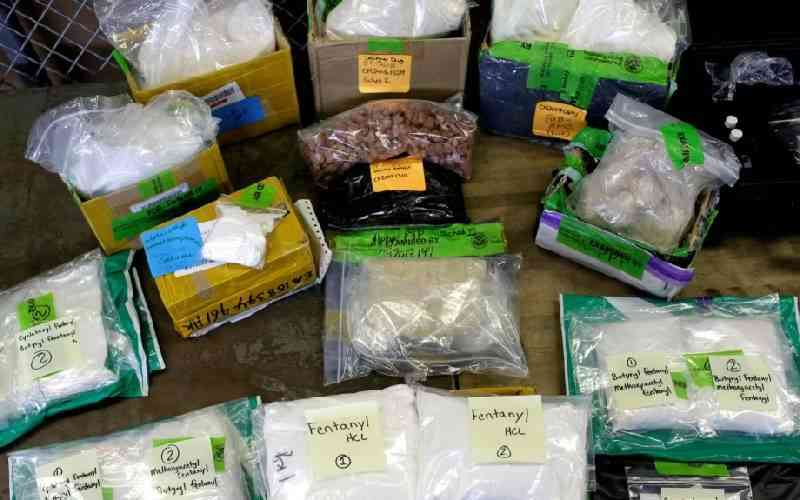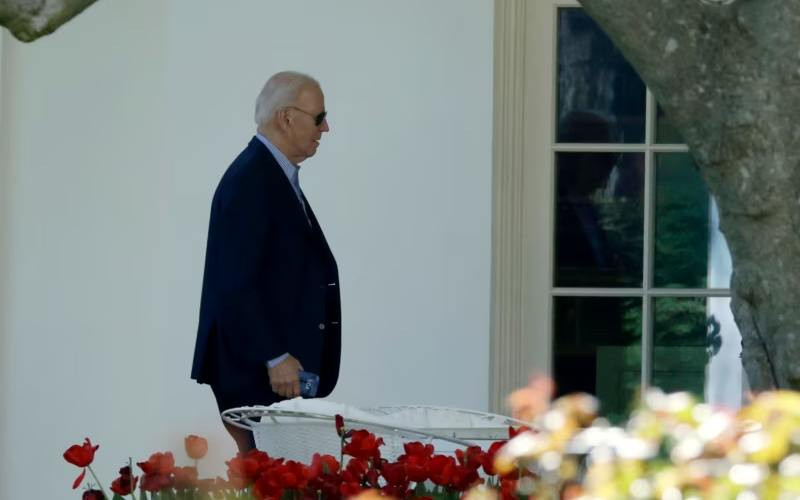
The United States hit 17 individuals and entities in China and Mexico with sanctions on Tuesday, accusing them of supplying equipment that Mexican drug cartels use to manufacture fentanyl-spiked fake pills for the U.S. market.
The move by the U.S. Treasury Department, coordinated with the Mexican government, is part of a U.S. crackdown on the flow of fentanyl and other illicit drugs from Mexico that are taking the lives of tens of thousands of Americans.
The nine companies and eight individuals sanctioned on Tuesday are "directly or indirectly" involved in the sale of pill press machines and other equipment used to stamp fake pills with counterfeit markings of legitimate pills, the Treasury Department said in a statement. The pills are often laced with fentanyl and sold online or on the streets to unsuspecting American customers.
"Treasury's sanctions target every stage of the deadly supply chain fueling the surge in fentanyl poisonings and deaths across the country," Under Secretary of the Treasury for Terrorism and Financial Intelligence Brian E. Nelson said in a statement. "We remain committed to using all authorities against enablers of illicit drug production to disrupt this deadly global production and counter the threat posed by these drugs."
The sanctions target seven companies and six people in China and one company and three people in Mexico.
The Chinese list includes Youli Technology Development Co., Ltd, a pill press supplier, and Yason General Machinery Co., Ltd., a vendor of pill press related equipment.
The Treasury Department said the two companies have worked with a Mexico-based pill equipment supplier who previously sold supplies to an individual linked to the Sinaloa cartel, one of two cartels behind the influx of fentanyl to the United States.
The Sinaloa linked person "used the machines to create super labs in Mexico with the capacity to produce millions of fentanyl-laced pills weekly," Treasury said.
The sanctioned Mexican company was identified as Mexpacking Solutions, a Chihuahua, Mexico-based business that sells pill presses and other equipment.
Treasury said the business is controlled by a Sinaloa Cartel pill press supplier and has been used as cover for an individual involved with making fentanyl-spiked pills and with assisting Mexico-based cartel members with pill press operations.
The sanctioned companies could not be reached for comment.
The sanctions come at a time when the United States is grappling with an opioid overdose crisis that claimed more than 100,000 American lives in the 12-month period ending in August 2022.
Synthetic opioids such as fentanyl caused more than two-thirds of those deaths, according to the Centers for Disease Control and Prevention.
U.S. officials say the fentanyl sold in the United States is manufactured in Mexico with precursor chemicals imported from China.
Under U.S. pressure, China banned the export of fentanyl to the United States in 2019.
But Beijing has allowed the export of precursor chemicals to Mexico to continue unabated, U.S. officials say.
Last month, the Treasury Department imposed sanctions on two Chinese companies that it accused of selling precursor chemicals to Mexican drug cartels.
China rejects blame for the U.S. fentanyl crisis.
In a statement cited by state-owned Global Times, the Chinese embassy in Mexico said, "it is internationally recognized that the responsibility for preventing the flow of ordinary chemicals into drug production channels lies with the importing country."
 The Standard Group Plc is a multi-media organization with investments in media platforms spanning newspaper print
operations, television, radio broadcasting, digital and online services. The Standard Group is recognized as a
leading multi-media house in Kenya with a key influence in matters of national and international interest.
The Standard Group Plc is a multi-media organization with investments in media platforms spanning newspaper print
operations, television, radio broadcasting, digital and online services. The Standard Group is recognized as a
leading multi-media house in Kenya with a key influence in matters of national and international interest.











